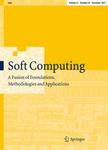版权所有:内蒙古大学图书馆 技术提供:维普资讯• 智图
内蒙古自治区呼和浩特市赛罕区大学西街235号 邮编: 010021

作者机构:West Pomeranian Univ Technol Dept Signal Proc & Multimedia Engn PL-71126 Szczecin Poland
出 版 物:《SOFT COMPUTING》 (Soft Comput.)
年 卷 期:2013年第17卷第6期
页 面:1095-1106页
核心收录:
学科分类:08[工学] 0812[工学-计算机科学与技术(可授工学、理学学位)]
基 金:UE EFRR ZPORR (Poland) [Z/2.32/ I/1.3.1/267/05]
主 题:Evolutionary programming Code optimization GPGPU Track-before-detect algorithm
摘 要:Track-before-detect (TBD) algorithms are used for tracking systems, where the object s signal is below the noise floor (low-SNR objects). A lot of computations and memory transfers for real-time signal processing are necessary. GPGPU in parallel processing devices for TBD algorithms is well suited. Finding optimal or suboptimal code, due to lack of documentation for low-level programming of GPGPUs is not possible. High-level code optimization is necessary and the evolutionary approach, based on the single parent and single child is considered, that is local search approach. Brute force search technique is not feasible, because there are N! code variants, where N is the number of motion vectors components. The proposed evolutionary operator-LREI (local random extraction and insertion) allows source code reordering for the reduction of computation time due to better organization of memory transfer and the texture cache content. The starting point, based on the sorting and the minimal execution time metric is proposed. The unbiased random and biased sorting techniques are compared using experimental approach. Tests shows significant improvements of the computation speed, about 8 % over the conventional code for CUDA code. The time period of optimization for the sample code is about 1 h (1,000 iterations) for the considered recursive spatio-temporal TBD algorithm.